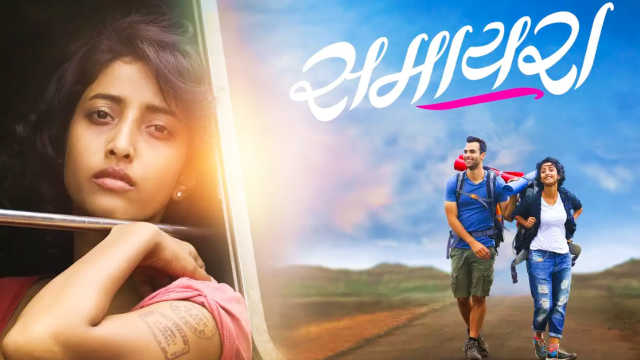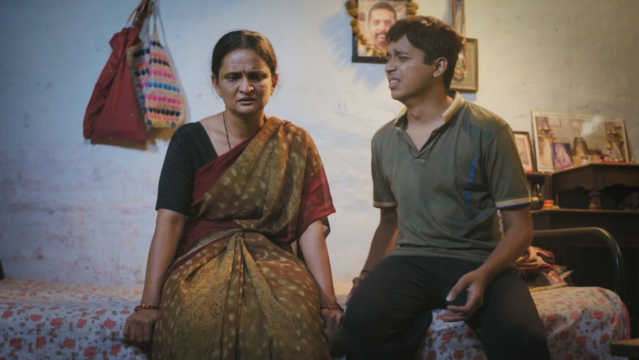
Keyur Seta
Mumbai, 10 May 2019 22:01 IST
Unfortunately, the film, directed by Yogesh Deshpande, suffers from the ever-present second half syndrome.

Pune, one of the well-known cities of Maharashtra, has changed a lot over the years, like any other Indian city. The contemporary scenario in Pune has been explored in some Marathi films in recent years, like the Mumbai-Pune-Mumbai series, Faster Fene (2017), and the yet-to-be-released Amaltash.
But along with growing modernization, parts of Pune continue to hold on to their traditions. This isn’t a bad thing, mind you, as it helps to preserve the old-world charm and identity of the city in the midst of the changing skyline and culture. It is in one such part that first-time director Yogesh Deshpande’s 66 Sadashiv is based.
The film starts with a song in which the qualities and characteristics of Punekars are enunciated, like the well-known Pune sarcasm, the amusing Puneri patyas (signboards), and the love of the afternoon nap.
All these typical qualities are found in our protagonist Prabhakar Shrikhande (Mohan Joshi). He stays in the iconic Sadashiv Peth with his wife (Vandana Gupte) and daughter (Apurva Modak), and also runs a photo studio there. But the characteristics of the typical Punekar are too deeply ingrained in him. Hence, he is ever ready to argue with people, and his sarcasm is always on the tip of his tongue.
This often leaves Shrikhande’s wife and daughter feeling embarrassed, like when he insults their family friends the Deshpandes (Mahesh Manjrekar, Asawari Joshi and Yogesh Deshpande) while visiting them.
Fortunately, Shrikhande’s argumentative nature also makes him a professional in training people how to get back at someone, with just the tongue as a deadly weapon, when insulted. So, he starts a coaching class to teach the knack. But this also brings him into the bad books of the local municipal councillor (Pravin Tarde).
66 Sadashiv succeeds in bringing alive the world in which the story is based. Apart from the production design, the witty dialogues must share credit for this. The lines during the various arguments in the film are realistic even while being hilarious.
But the whole scenario would not have been believable without Mohan Joshi’s convincing act. Slipping into the character of the argumentative Punekar with ease, the veteran maintains a fine balance between arrogance and sarcasm. He never lets himself appear negative by tilting towards arrogance.
Gupte gives him able support and displays some typical mannerisms constantly, setting the right mood. Apurva Modak is quite the find. She is just perfect for the character of a modern young woman who maintains her connection with tradition as well. But director Deshpande is miscast opposite her as he looks much older. Mahesh Manjrekar's role is only a cameo, but it is a memorable one, particularly because his character's name is Makrand Deshpande.
The story is established well. Thereafter the director needed to maintain the tempo. Sadly, this is where 66 Sadashiv falters. For instance, the idea of setting up a coaching class happens in a hurry. This is still a minor issue though.
The bigger problem is that nothing much happens in the post-interval section in terms of story development after the main conflict is established in the first half. There are quite a few conversations that are dry and don’t serve any purpose. In fact, you could take a bathroom break during this portion and you wouldn’t miss much.
You hope the film stages a recovery by the time we reach the climax but, unfortunately, the narrative does not improve. Things happen too conveniently with hardly any conflict or tension.
However, even when you sense that things are going downhill, you never quite give up on 66 Sadashiv because of the innocence and simplicity on offer. In a way, the film reminds you of those lovely old, uncomplicated television serials on Doordarshan.
You might also like

Review Marathi
Samaira review: This well-intentioned travel drama suffers from a dull script
Actor Rishi Deshpande's directorial debut doesn't rise as much as its performances. ...

Review Marathi
Goshta Arjunchi review: Triggering conversations about mental health
Anupam Barve’s short film urges people to talk to their families about what they are going...

Review Marathi
Ekda Kaay Zala review: Sumeet Raghvan impresses in a film that does not use its full potential
Directed by Dr Saleel Kulkarni, the film has a fine act by child artiste Arjun Purnapatre....

